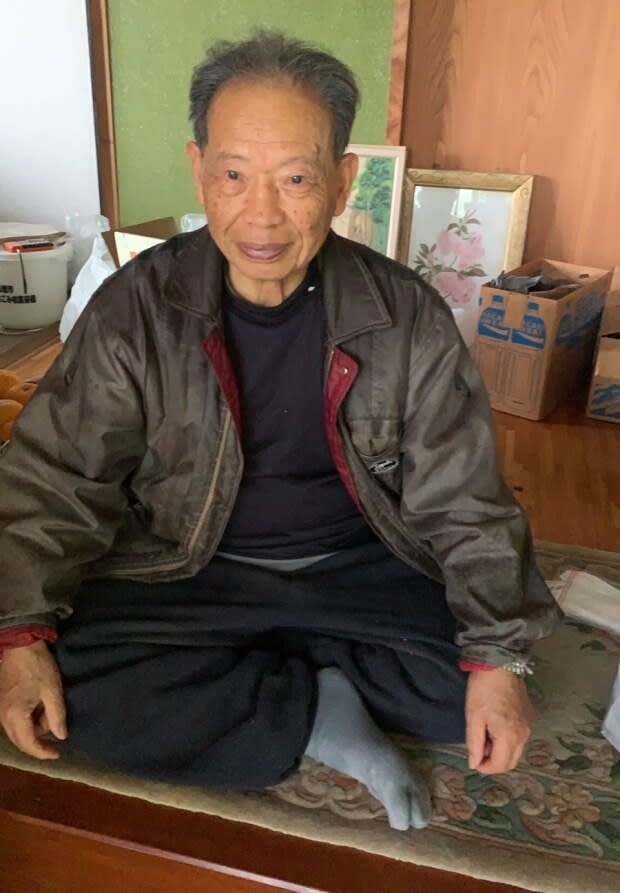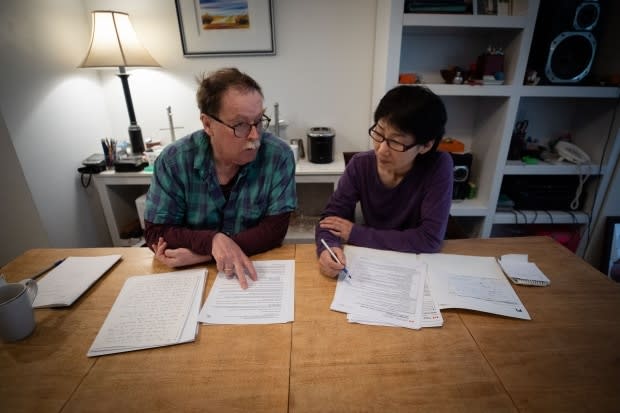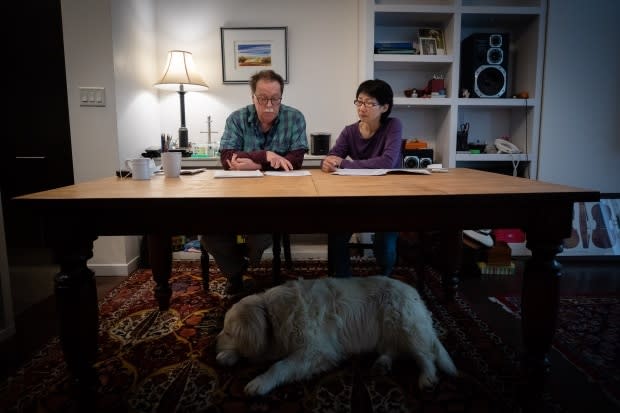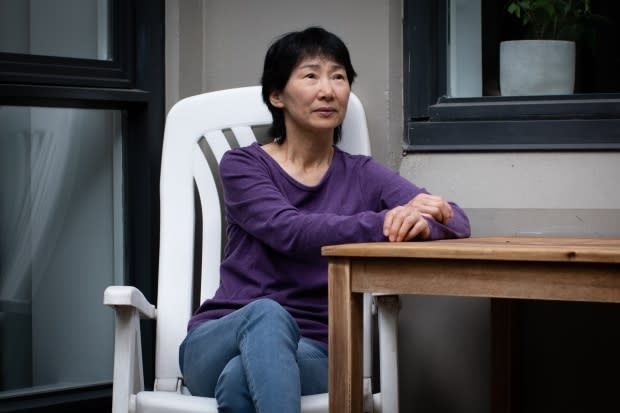B.C. couple calls for automatic extensions after permanent resident card renewal goes awry
Nobody can be in two places at once. But Kazuko Wakiyama has been trying her best.
The 57-year-old permanent resident originally hails from Japan but has been living in Vancouver with her husband, Robert Newton, for the better part of three decades.
Though she worked and raised a family in B.C., the mother of two says she still found time to visit Japan, flying back to visit her father on the island of Kyushu several times in recent years.

Wakiyama says the 88-year-old was doing well on his own when she saw him last July.
Since then, however, he's ended up in hospital, citing the stress of the COVID-19 pandemic, along with ongoing heart issues. The couple says doctors have written them, suggesting his condition may not improve.
"He doesn't want to die alone," said Wakiyama "He wants me to go see him".

But while she is determined to see her father one last time, Wakiyama claims Canadian government delays in renewing her permanent resident card threaten to leave her stranded in Japan.
Permanent residents can apply for a permanent resident travel document (PRTD) after they have left the country, but the couple fears similar processing delays could leave Wakiyama waiting for weeks, or even months, to return home.
"Whenever I need to come back, I don't know what to do" she said. "I don't have any confidence that I could get the PRTD when I wanted to have it."
Processing delays
Robert Newton has helped his wife navigate the PR card renewal process on several occasions and shares her concerns. The retired math teacher says the wait time typically hovers around a month.

Despite sending Wakiyama's documents off in early March, though, Newton says their file isn't even in the system, with officials reportedly blaming the delay on low staffing due to COVID-19.
In an email dated June 10, 2020, government staff say Feb. 10 is the back date for processing, meaning any applications received after that date would not yet appear in the system.
Newton alleges he was recently told the date had been moved up — but only to Feb. 20.
The Immigration, Refugees and Citizenship Canada (IRCC) website, meanwhile, indicates a wait time of 287 days, as of June 30.
"The system has let us down immensely," he said. "We're not anywhere close to where they are in terms of processing."
'No documentation'
Desperate for help, the couple emailed several government representatives including Vancouver Quadra MP Joyce Murray, Minister of Immigration, Refugees and Citizenship Marco Mendicino and Prime Minister Justin Trudeau.
In each case, government staff were unable to expedite the couple's application, often redirecting them to the IRCC website.
Immigration Canada has not responded to CBC's request for comment,
Canada's visa service desk, meanwhile, advised the couple that Wakiyama could apply for the PRTD at the Canada Visa Application Centre in Osaka or online.
Newton says conversations with Osaka staff, however, suggest the processing time for PRTD applications was also in flux.

"If it is in any way comparable to what we're going through with the PR card, we are going to be looking at six months or a year" he said.
Inconvenience aside, the couple worries a lengthy delay could prevent Wakiyama from helping Newton, who is diabetic and concerned about his own health.
"If anything happens to me, even if she wants to return, she can't." he said "She has no documentation."
Automatic extensions?
The couple questions whether Ottawa should allow automatic extensions to help Canada's permanent residents.
They are asking the Trudeau government to extend the expiry date on existing PR cards by up to a year, in order to account for the extreme delays associated with COVID-19.
Faced with her father's mortality and an international pandemic, Wakiyama says allowances like that would help her and other permanent residents.



